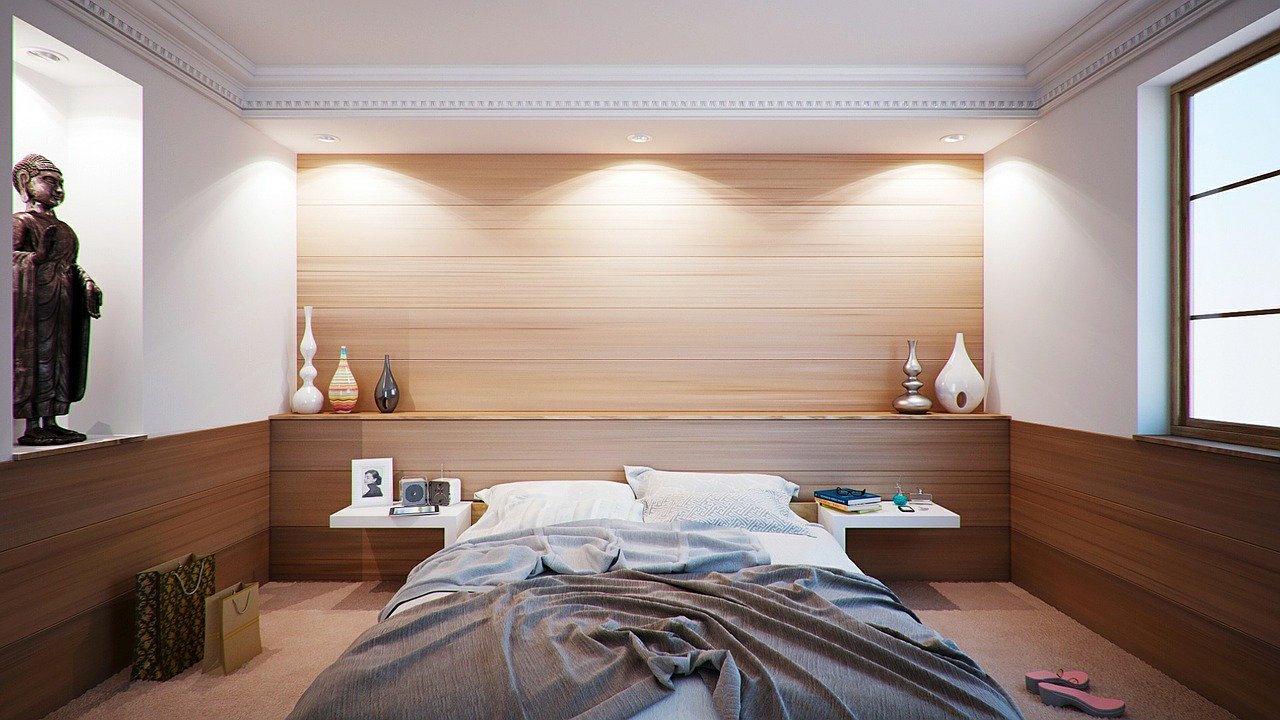Sleep has long been established as one of the most important factors to living a healthy life. Getting good, regular sleep helps us to be smarter, to live longer, and to look and feel better. Sleep not only improves our physical health but is key to mental health as well. A good night’s sleep can help regulate stress and can mitigate some of the effects of depression and anxiety. Understanding the importance of sleep then, why do so many people struggle to get quality sleep, and what can we do to fix it? By using these six tips to sleep smarter, you can start getting better, more restful sleep tonight!
1. Avoid Screens Before Bed
It can be tempting, at the end of the day, to lay in bed and wind down by streaming your favorite show or scrolling through social media but think twice before opening that device. Research shows that sleeping near screens and having screen time before bed are associated with shorter sleep times. Even having a screen in the area where you’re sleeping can negatively impact your perception of the sleep that you did get.
Try moving the TV out of your room or turning your phone face-down at night so that the light won’t disturb you. Instead of using screens, try reading a book, writing in your journal, or practicing meditation to prepare your mind and body for a more restful, restorative sleep.
2. Add foods to your diet that have sleep-boosting qualities
Making small adjustments to your diet can yield big results at bedtime. Foods high in anti-oxidants, melatonin, tryptophan, and lean proteins can make your midnight snack work for your benefit. Try eating a complex carb like popcorn, oatmeal, or a multi-grain cracker before bed. Here are some other foods to try that can help you get a more restful sleep:
- Nuts
- Cottage Cheese
- Warm Milk
- Kiwis
- Berries
- Plums
Source: https://www.sleepfoundation.org
https://www.hopkinsmedicine.org/health/wellness-and-prevention/melatonin-for-sleep-does-it-work
3. Meditate
The scientifically-proven benefits of meditation are profound for mental and physical health. Meditation is a practice that can be found in many religions and cultures all over the globe, but did you know that it can also work to help you get to sleep and stay asleep? It can take many forms, but most commonly it is the process of focusing thoughts, regulating breathing, and reflecting. It has been shown increase sleep time and improve sleep quality.
Meditation apps like Headspace or Calm are great tools to help guide your meditation practice, or you can try it on your own by focusing your breath, clearing your mind, and/or repeating a mantra to focus your thoughts.
4. Get More Sunlight
Melatonin, sometimes called the Dracula hormone, is a hormone released at night that regulates your sleep and wake cycles. It would seem odd, then that exposure to sunlight would boost melatonin production, but it does! Studies have found that when people are exposed to sunlight or bright artificial light in the morning, melatonin production occurs earlier and makes falling asleep at night easier. To boost your light exposure, try going for a morning walk or run or spending time in a sunny part of your house.
Note: Bright artificial light after dark, especially blue light from screens (see tip #1) can inhibit melatonin production and make falling asleep more difficult. To encourage melatonin production, try keeping rooms dimly light after the sun has gone down.
Check out this article for more information about how the sun affects your health!
Source: https://www.sleepfoundation.org/
5. Avoid Caffeine 4-6 Hours Before Bed
Caffeine is a naturally occurring substance that stimulates the central nervous system, helping you feel more awake and alert. Most people are aware that they should avoid consuming foods and drinks with caffeine before bed, but did you know that studies have suggested that consuming caffeine up to six hours before bed can negatively impact your quality of sleep? Caffeine is found most commonly in coffee, tea, chocolate, soft drinks, and energy drinks. Tonight, instead of reaching for that chocolate dessert, try choosing one of the sleep-promoting snacks above to make falling asleep easier.
6. Set a Routine and Stick to It!
Bedtimes are for kids, right? Wrong! Research has found and confirmed that individuals who have and stick to a sleep schedule get better, more restful sleep. The National Institute of Neurological Disorders and Stroke recommends you “set a schedule – go to bed and wake up at the same time each day.” When you set and stick to a schedule, your body gets into a rhythm of melatonin production that will make falling and staying asleep a piece of cake!
Note: Sleep and wake cycles differ for adolescents as their brains are developing. Most teens experience a “sleep phase delay” meaning that it is difficult for them to fall asleep before 11:00pm, and difficult to wake before 9:00-10:00am.
Check out this article for more scientifically-proven bedtime routine tips!
Source: https://www.sleepfoundation.org/




